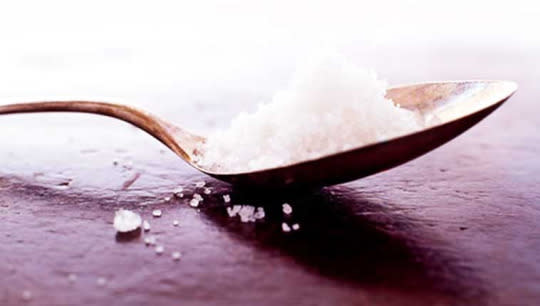Should You Really Salt Your Food?
Is salt bad for you? For years, the majority of wellness experts answered that question with a resounding “Yes.” Research published in medical journals, as well as the New York Times, has been calling that assumption into question. What gives? Let’s take a look.
By Tracy Piper for CharlottesBook.com

Why Do We Eat Salt In The First Place?
Because our bodies need it. Sodium is an essential mineral that helps send messages from the brain to the muscles. It’s also a temperature regulator, allowing us to do things like cool down after exercise. If you become sodium deficient, then you won’t be able to sweat, which helps release toxins and heat. This, in turn, can easily lead to a stroke or acute dehydration because your body heat will burn up too much fluid.
White Bread = Refined Salt
Most of us grew up eating a lot of refined table salt. This kind of salt has been stripped of its beneficial minerals (including electrolyte-balancing magnesium) and has even undergone a bleaching process that gives it that white color. Those absent minerals have been replaced with chemicals such as bromine (which can be an endocrine disruptor) and anti-clumping agents to increase shelf-life.
Related: The Luminous Skin Diet
Unfortunately, they also prevent the salt from absorbing moisture. Because the main benefit of salt is to regulate water in the body, making salt unable to take in moisture removes this valuable therapeutic effect. We’re left with a substance that is void of many key beneficial components.
The Healthy Salts
So what are the healthy salts, the ones our bodies really need? Unprocessed salt that is alive. Yes, you read that right. When you buy salt, if you see it stuck all over the glass container and caked up around the lid, that’s a living salt. Sea salts, like Himalayan or Celtic varieties, are good examples. These are rich in not only sodium, but also potassium, magnesium, and calcium chloride—a combination that can help correct the body’s acidic levels and alkalize its systems.
Related: Credo Beauty Is Here: What Should You Buy?
And that’s just the beginning of what salt can do. Here’s a rundown of the additional health benefits of salt:
• Controls blood glucose by improving insulin sensitivity.
• Works as a natural antihistamine. (Try putting a pinch of salt on your tongue when going through an allergic reaction or an asthma attack to help control the reaction.)
• Helps maintain healthy gums thanks to its antibacterial properties.
• Improves sleep quality and helps reduce stress.
• Helps maintain a proper stomach pH.
• Can support weight loss. (Adequate levels of salt lowers the levels of our stress hormone, cortisol. When our cortisol levels are high, our metabolism can slow down).
So, the question: To salt or not to salt?
Answer: Salt, but use the right kind.
READ THIS NEXT
Another major health debate: should you be vegan or vegetarian?
Also, balancing your body’s pH can be complicated—here’s a guide.
FIND BEAUTY AND WELLNESS EXPERTS
Only the best cosmetic doctors, skincare gurus, nutritionists, fitness and wellness professionals make it into our book. Read client reviews, book appointments, and get expert advice.
